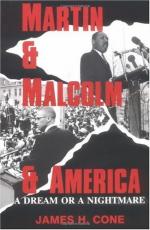|
This section contains 2,823 words (approx. 10 pages at 300 words per page) |

|
Almost all of us have had dreams, yet few could say with confidence what they are, beyond agreeing that they occur during sleep and have some likeness to waking experience. Yet most people would in all probability accept the kind of definition given by philosophers, for example Plato's "visions within us, … which are remembered by us when we are awake and in the external world" (Timaeus, 46A) or Aristotle's "the dream is a kind of imagination, and, more particularly, one which occurs in sleep" (De Somniis, 462a). Indeed, such notions seem to be summarized in the Oxford Dictionary's definition: "A train of thoughts, images, or fancies passing through the mind during sleep; a vision during sleep." Dreams are striking phenomena, and the more superstitious see in them signs and portents of what is to happen; even today divination by dreams has not lost its popularity. A more...
|
This section contains 2,823 words (approx. 10 pages at 300 words per page) |

|


